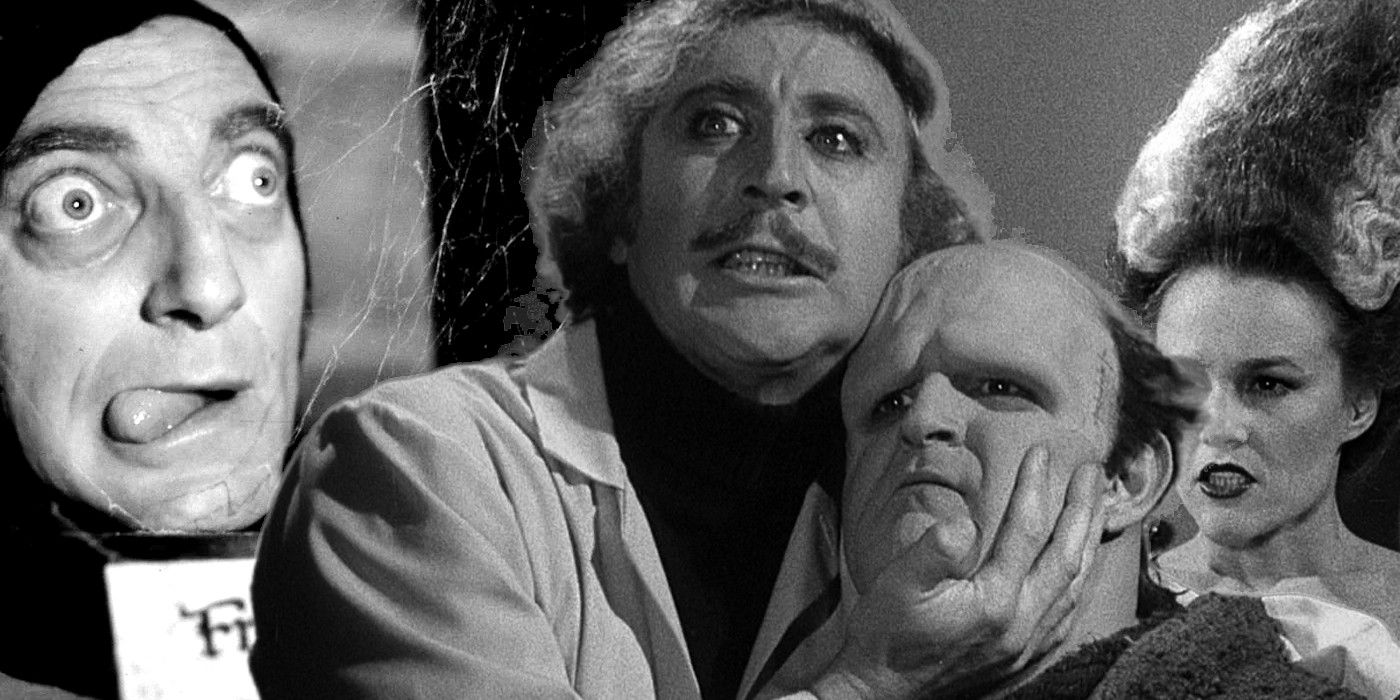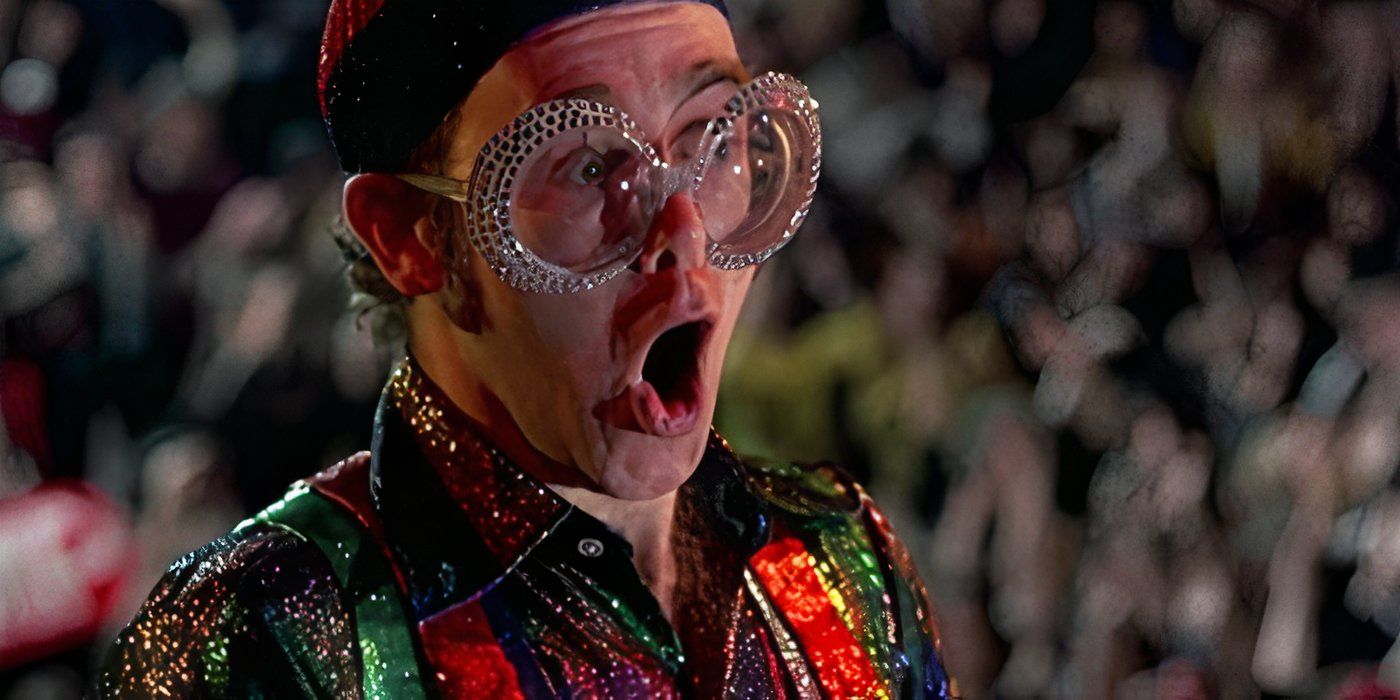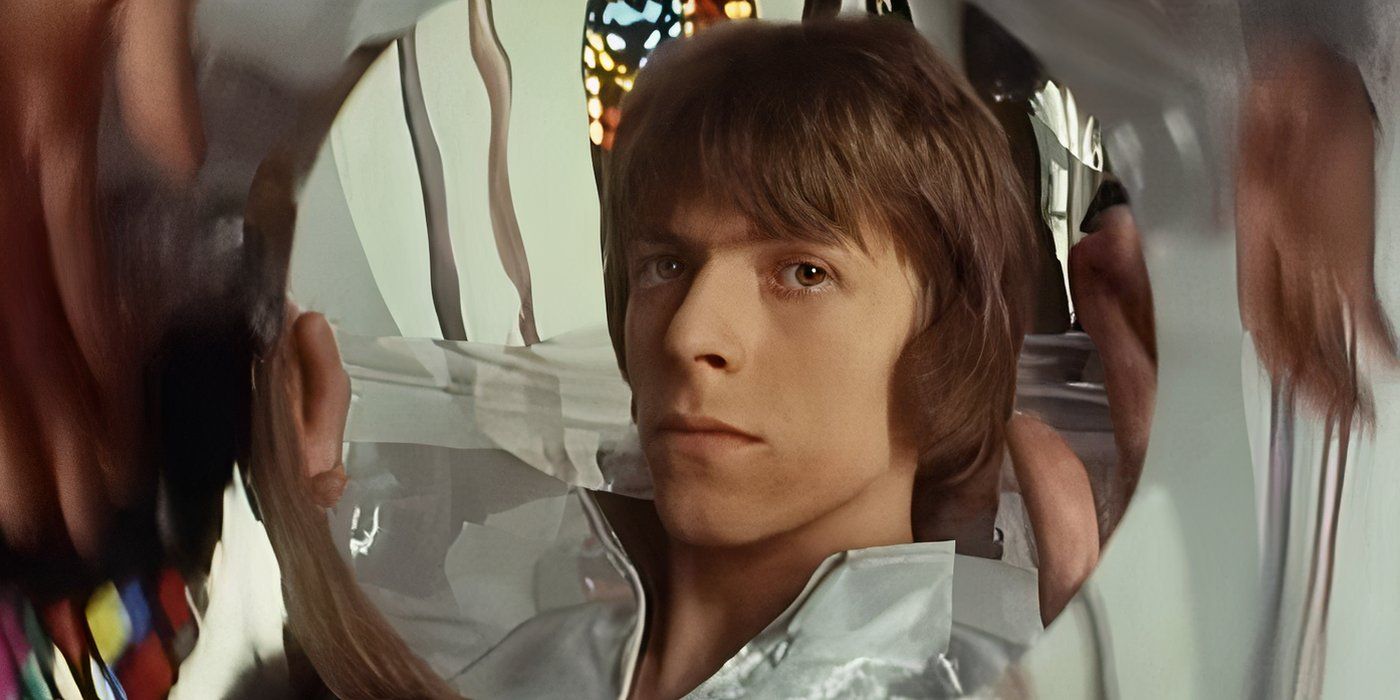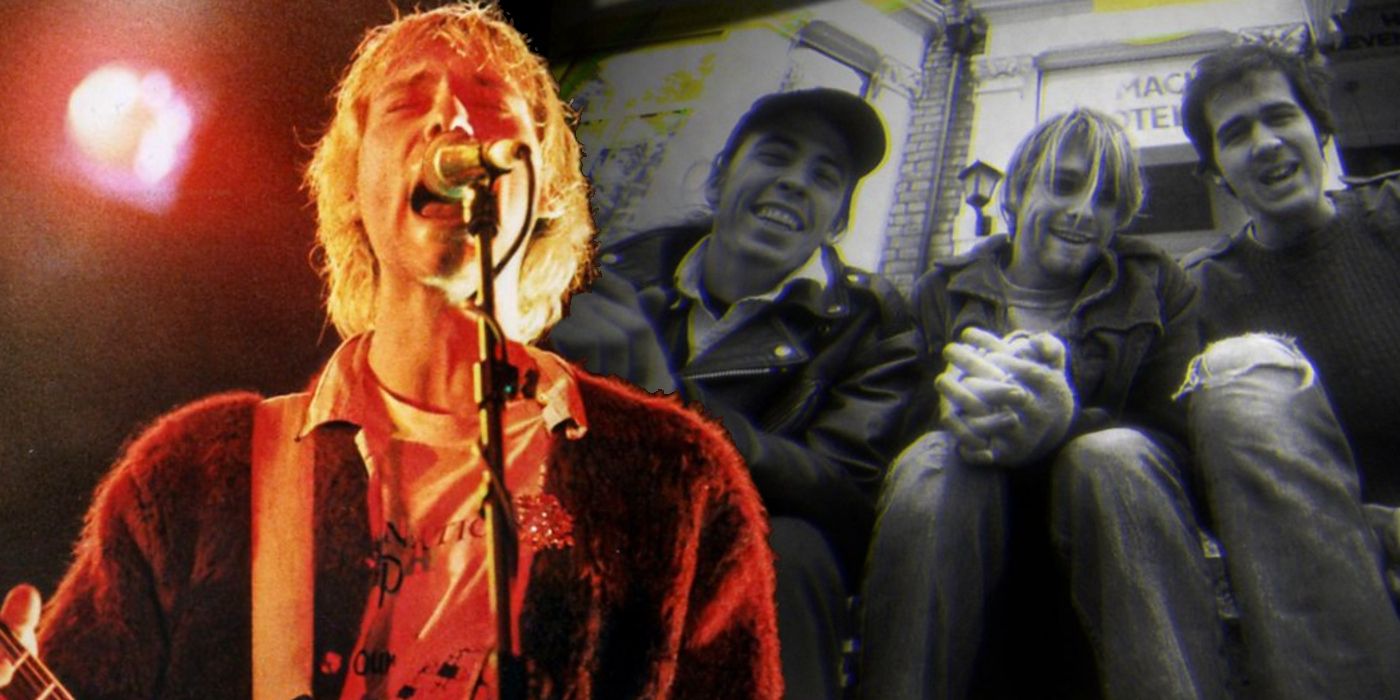This article contains mentions of body horror, war trauma, and suicide.
Artists find inspiration in some of the strangest places, and musicians are no exception to that – in fact, classic rock stars often find inspiration in the strangest of places. Yet there’s a unique strangeness to be found specifically in the annals of classic rock albums; whether it’s the unhinged party-animal vibes of hair metal bands or the psychedelic experimentation of the ’70s, it seems like the hits of yesteryear always have some truly odd and unique stories behind them.
Of course, “classic rock” is an increasingly vague term; it started out as a term for the album-oriented blues-rock format that exploded in the 1970s, but the farther that decade disappears into the rearview mirror, the more genres it absorbs. At this point, classic rock includes everything from new wave to nu metal, and basically anything else with righteous guitar riffs from before the turn of the milennium. So, here are a few renowned late-20th-century hits with particularly unique origins.
8
Warren Zevon – “Werewolves of London”
Excitable Boy (1978)
Warren Zevon was classic rock’s eternal bridesmaid, always managing to release records that did well enough but never breaking through into mainstream success – except for his first true hit single, “Werewolves of London.” This piano-driven number goofing on the 1935 horror film Werewolf of London helped drive the album Excitable Boy fairly high up the charts, but Zevon had never remotely considered that it might be one of the most successful songs of his career.

Related
2025 Musical Influence Award Winner Warren Zevon: 12 Songs You Need To Hear
With Warren Zevon being inducted into the Rock and Roll Hall of Fame under the Musical Influence Award, we take a closer look at some of his songs.
The genesis of “Werewolves of London” came about in 1975, when Zevon was working as bandleader for the Everly Brothers. Phil, the younger Everly, suggested Zevon adapt Werewolf of London as a song-and-dance number. The song itself came together in all of 15 minutes, but no one took it seriously – at least not until Zevon’s friend, the legendary Jackson Browne, took a liking to it and started playing it on tour.
Recording “Werewolves” for Excitable Boy should have been the simplest part of the album’s sessions. Yet “Werewolves” proved nearly impossible to get right, even with a backup band that happened to contain two members of Fleetwood Mac – Mick Fleetwood and John McVie. All in all, the band laid down 59 takes of “Werewolves of London” over the course of an overnight session that ate up the album’s budget like the titular werewolf finally getting his big dish of beef chow mein – and ironically, the cut that wound up on the album was the second take.
7
Bonnie Tyler – “Total Eclipse of the Heart”
Faster Than The Speed Of Night (1983)
Bonnie Tyler, after leaving RCA Records in 1981, was in need of a new songwriter and producer, especially as she was looking to experiment with Phil Spector’s famous Wall of Sound production techniques. The songwriter she sought out was none other than Jim Steinman, the composer behind Meat Loaf’s infamous Bat out of Hell rock opera, and he delivered in spades with “Total Eclipse of the Heart,” a ballad that took the international charts by storm.
In the ’90s, Steinman used “Total Eclipse of the Heart” as one of the songs in his musical Tanz der Vampire (Dance of the Vampires), based off the film Fearless Vampire Killers. In an interview about the show with Playbill, he revealed that “Total Eclipse of the Heart” had actually begun not as a song for Bonnie Tyler, but for another vampire musical:
With “Total Eclipse of the Heart,” I was trying to come up with a love song and I remembered I actually wrote that to be a vampire love song. Its original title was “Vampires in Love” because I was working on a musical of Nosferatu, the other great vampire story. If anyone listens to the lyrics, they’re really like vampire lines. It’s all about the darkness, the power of darkness and love’s place in the dark…
6
Aerosmith – “Walk This Way”
Toys In The Attic (1975)
If there’s one thing people associate Aerosmith’s “Walk This Way” with, it’s generally Run D.M.C., whose cover/collaboration of the song in 1986 was a smash hit that also helped Aerosmith become culturally relevant again. Yet there’s another cultural touchstone that deserves to be mentioned in the same breath as the song, and it’s the one that gave it its name and hook: Mel Brooks’ seminal 1974 horror-comedy Young Frankenstein.

Related
15 Best Quotes From Young Frankenstein
Young Frankenstein is one of Mel Brooks’ funniest spoofs, and the horror comedy movie’s best quotes prove why it’s an absolute classic.
In early 1975, as the band was in the middle of the Toys in the Attic recording sessions, they found that while a particular in-progress song had an incredible hook, it had no title or lyrics. Deciding a break was just the thing to help refresh their minds, the band and their producer caught a showing of Young Frankenstein and were all so entertained by the scene where Marty Feldman as Igor tells Gene Wilder’s Frederick Frankenstein to “walk this way” that they decided to use the phrase as the song’s title.
The lyrics didn’t come as easily, though. That night, Steven Tyler wrote a set of lyrics for the song, but forgot them in his cab on the way to the studio. Rather than giving up, however, he took a set of pencils and spent several hours brainstorming lyrics, writing them on the walls of the studio’s top floor and the adjacent stairwell. Such a frenzied attempt at songwriting shouldn’t have worked, but “Walk This Way” was a top-10 single by early 1977; it turns out that some artists really do their best work in a fit of last-minute panic.
…And Justice For All (1988)
Although Metallica was certainly popular by the time they released …And Justice For All, their fourth studio album, “One,” was their first single to hit the Billboard Hot 100, peaking at number 35 on that chart (as well as, oddly, number one on the national charts in Finland) by mid-1989. A ballad with clearly anti-war sentiments, “One” was a powerful song that showcased how Metallica had musically matured over the ’80s, even with the tragic death of original bassist Cliff Burton.

Related
8 Metallica Songs That Are Still Basically Perfect
From thrash to orchestras and HP Lovecraft, these are eight near-perfect Metallica songs that are considered classics by the metal community.
Yet “One”‘s anti-war messaging goes far deeper – and to a far more unsettling place – than it might seem to anyone who hasn’t looked closely at the lyrics or original music video. Inspired by Dalton Trumbo’s 1971 film Johnny Got His Gun, which was in turn based on Trumbo’s book of the same name first released in 1939, the song is about a young soldier who, maimed by an explosion on a battlefield, is left blind, deaf, jawless, armless, and legless, yet still painfully alive and awake.
With visual and audio clips from the film interwoven through the music video, the full cut of “One” transforms from a solid enough anti-war song to a heart-wrenching, serious examination of the kind of hell that follows soldiers home from combat. It’s no surprise that “One” was the first metal song to win the Grammy for Best Metal Performance in 1990, as its popularity meant that even the Recording Academy had to acknowledge the power of metal in combination with extreme body horror.
4
The Who – “Pinball Wizard”
Tommy (1969)
In early 1968, Pete Townsend wanted the Who to take a step in a new direction as a band – not merely away from the three-minute radio-friendly format of general rock and roll, but also away from the hyperproduced, transcendental, and more importantly impossible-to-perform-life sound that the Beatles were pioneering. The result was Tommy, the first album to describe itself as a “rock opera,” which combined both new and old material to tell the story of the life of a young man, deaf, dumb, and blind, and his unique perspective on the world around him.

Related
From Elton John To Tina Turner, The World’s Biggest Rock Stars Assembled For A Classic 1975 Movie
British director Ken Russell adapted The Who’s legendary rock opera Tommy into the wildest, most over-the-top star-studded musical of the 1970s.
Yet when Townsend played a rough cut of the album to renowned music critic Nik Cohn later that year, his response was merely lukewarm, saying that it needed a lighter note to pair with the heady spiritualism that Townsend had made into Tommy‘s emotional focus. Cohn’s suggestion was to have the titular Tommy be a savant at some kind of game, despite his disabilities, and Townsend immediately suggested pinball because he knew Cohn himself was a fan of it. Cohn immediately declared the idea brilliant, and Townsend had “Pinball Wizard” written and recorded as quickly as possible.
3
David Bowie – “Heroes”
Heroes (1977)
Heading into the studio in West Berlin in 1977, David Bowie knew the album he was working on would be called Heroes, and that it would have a song by the same title, as that was the concept he’d worked up with help from friend and frequent collaborator Brian Eno. Yet not only was almost the entirety of the song built through improvisation, but the inspiration for it came from something Bowie spent the next 25 years keeping secret.

Related
David Bowie Hated This Classic Song With 350 Million Streams So Much He Threatened To Destroy It
“Space Oddity” may have been David Bowie’s first hit and one of his signature songs, but he had a complex relationship with its popularity.
The instrumental sessions for “Heroes” were recorded first, as Bowie had the habit of not recording vocals until the only people left in the building were him and his producer, Tony Visconti, in part because Bowie was using this album to experiment with improvising lyrics while at the mic instead of writing them beforehand, which he’d seen Iggy Pop prove quite successful at. Yet even Visconti’s presence was throwing Bowie off his groove with “Heroes,” and so Bowie asked the producer to give him the room for a bit so he could try and come up with something.
Bowie kept the secret of that kiss for years.
As Bowie sat alone in the studio, he had a view of the Berlin Wall out the window – and as he watched it, he saw Visconti and backing vocalist Antonia Maass step into the wall’s shadow and kiss. Bowie kept the secret of that kiss for years, as Visconti was married to another woman at the time, and simply claimed the song’s genesis was in seeing an anonymous couple kissing in that spot. It wasn’t until 2003, over twenty years after Visconti had divorced his wife, that Bowie felt comfortable admitting the details in an interview with Nicholas Pegg.
2
Heart – “Barracuda”
Little Queen (1977)
Modern audiences most often associate Heart’s hard-driving “Barracuda” with the various political figures that have used it as a campaign song, such as Sarah Palin in 2008, but the song was originally written as a scathing critique of the amoral marketing practices of Mushroom Records, one of the two labels Heart was signed to in the mid-’70s. Specifically, Mushroom created a publicity stunt involving a suggestive photo shoot of Ann and Nancy Wilson, the sisters that helped found the band, and the implication of them having an incestuous, lesbian affair.
The photo shoot – which had been used for the cover of their 1975 album Dreamboat Annie – showed the sisters standing side-by-side with bare shoulders; Mushroom’s use of it in the December ’76 issue of Rolling Stone added a caption implying a sexual relationship between them. The sisters’ rage in response led to them breaking their contract with Mushroom Records, channeling the frustration into “Barracuda,” and releasing their next album, Little Queen, with Portrait Records instead.
1
Filter – “Hey Man Nice Shot”
Short Bus (1995)
Richard Patrick, previously a guitarist for Nine Inch Nails, formed Filter after leaving NIN in 1993, and while their first release, Short Bus, didn’t exactly set any records for sales or chart performance, it was a solid record that turned into a true sleeper hit after a while. Part of the slow success was due to the odd reactions to the album’s debut single, “Hey Man Nice Shot”; the song’s timing and subject matter had listeners assuming it was some kind of comment on the suicide of Nirvana frontman Kurt Cobain the year before.

Related
Why There’s Never Been A Nirvana Biopic Explained
Despite being one of the most influential bands of the 90s, there’s never been a true Nirvana biopic, and signs suggest there won’t be anytime soon.
The actual inspiration for “Hey Man Nice Shot” was even darker than audiences imagined. Instead of Cobain’s suicide, Patrick had been inspired to write it by the death of Pennsylvania state treasurer R. Budd Dwyer, who shot and killed himself during a public press conference on January 22, 1987. Dwyer had been convicted of bribery charges the year before and, anticipating a severe sentence from the U.S. District Court that heard his case, instead chose to publicly profess his innocence, decry the legal system, and take his own life rather than spend a decade or more behind bars.
Patrick, who was 19 at the time of Dwyer’s death, had caught the press conference on TV and was profoundly affected by it. Later, in 1991 and while on tour with Nine Inch Nails, he found a videotape of raw footage of the conference at a bookstore and was inspired to write the first draft of the song. After leaving NIN to form Filter, it was a no-brainer for Patrick to include “Hey Man Nice Shot” on Short Bus.









